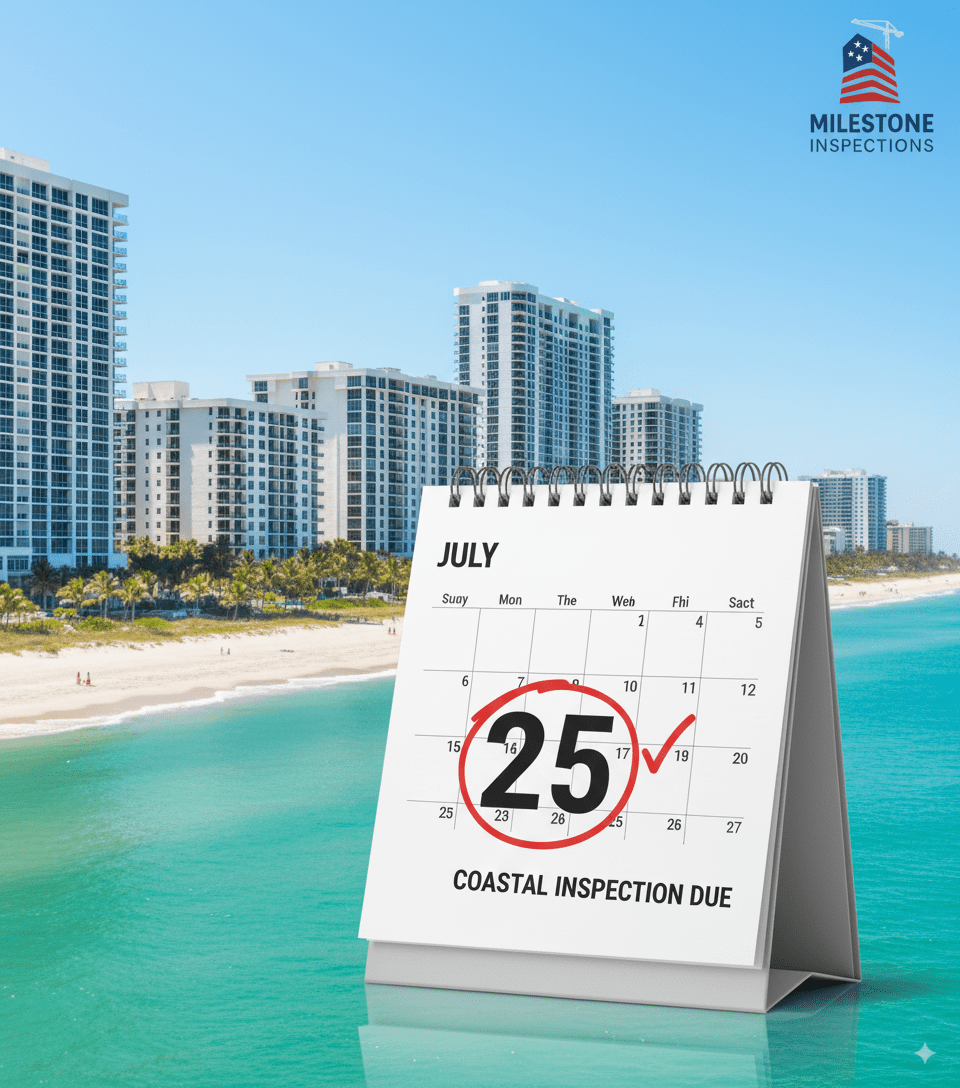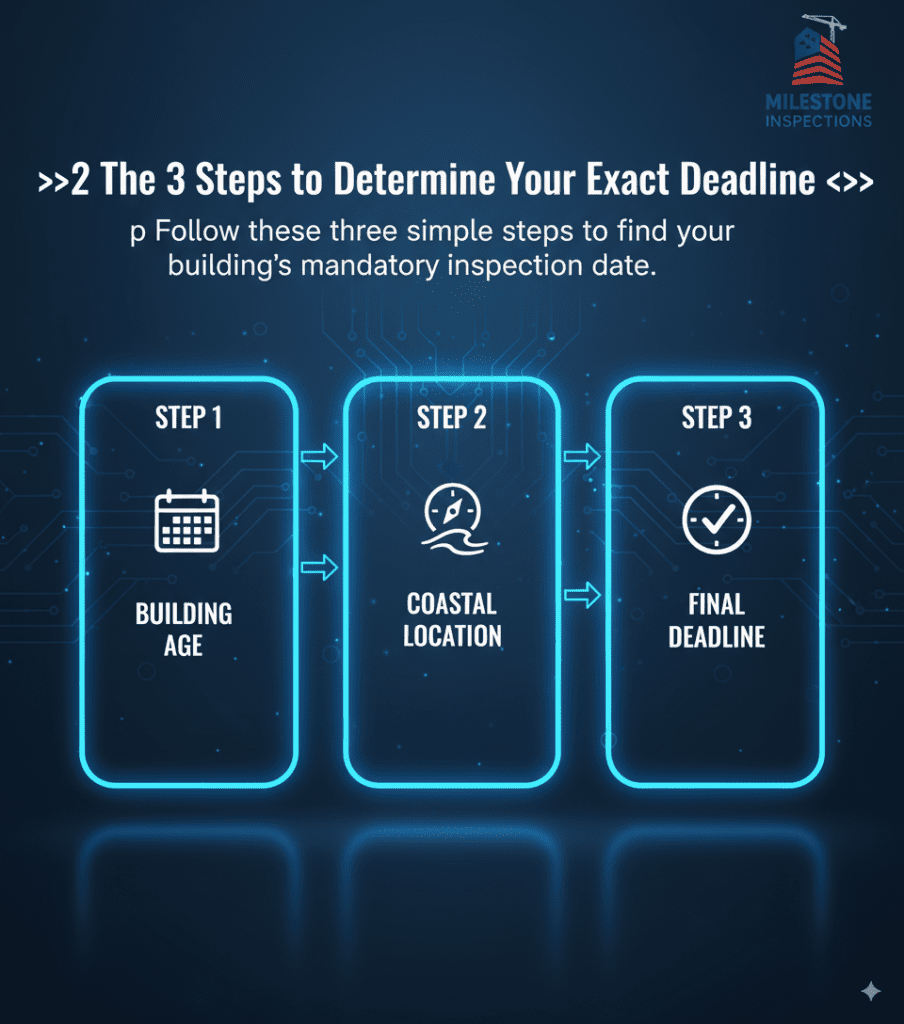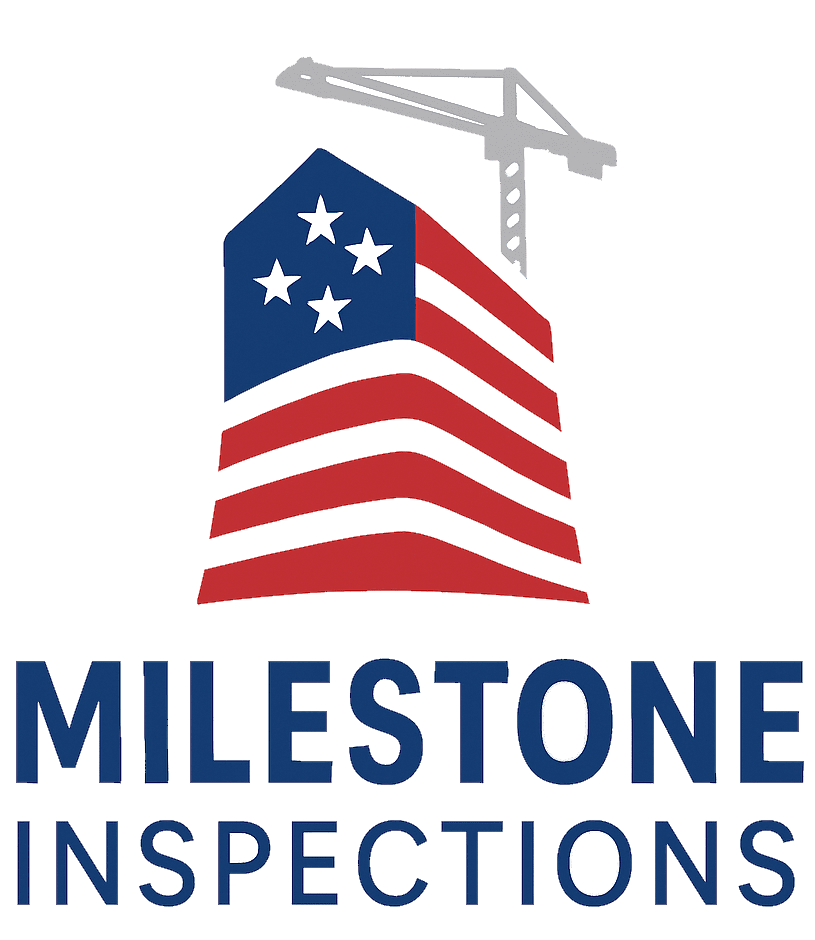
Is Your Building's Deadline Approaching? How to Calculate Your Florida Milestone Inspection Date
The Florida Milestone Deadline is the most urgent question facing condominium and co-op boards across the state. With the new building safety laws now in effect, understanding your specific timeline isn’t just important—it’s a legal requirement. Missing this date can lead to significant penalties and insurance complications.
Is Your Building’s Deadline Approaching? How to Calculate Your Florida Milestone Inspection Date? Fortunately, determining your deadline is a straightforward process. This guide will provide a clear, step-by-step method to calculate your building’s exact date for its first mandatory Milestone Inspection, giving you the clarity and confidence needed to plan ahead.
Table of Contents
Why This Deadline is a Critical Issue
The state has made compliance with the Florida Milestone Deadline non-negotiable. The law was designed to be proactive, identifying potential structural issues in aging buildings before they become life-safety threats. For an association’s board, this means that meeting the deadline is a fundamental part of your fiduciary duty to protect the residents and their property values. Failing to act in time can have serious consequences, making it a top priority for every board and property manager.

The 3 Steps to Determine Your Exact Deadline
Follow these three simple steps to find your building’s mandatory inspection date.
Step 1: Find Your Certificate of Occupancy (CO) Date
The entire timeline is based on your building’s “age,” which is officially determined by the date its Certificate of Occupancy (CO) was issued. This is the document that originally marked the building as safe to inhabit. You can typically find this date through your county’s public records:
- County Property Appraiser Website: Search for your building’s address. The property details often list the original construction year.
- Local Building Department: Your city or county’s building department will have the original CO on file.
- Association Records: Your condominium’s official documents may also contain this information.
Knowing this year is the essential first step in the process.
Step 2: Determine Your Building’s Location (Coastal vs. Inland)
The new law sets two different timelines based on a building’s proximity to the coastline, recognizing the harsher environmental conditions faced by coastal properties.
- Coastal Buildings: If your building is located within three (3) miles of the coastline, its first Milestone Inspection is due at 25 years of age.
- Inland Buildings: For all other buildings, the first inspection is due at 30 years of age.
Step 3: Calculate the Deadline and Act
With the CO year and your location, the calculation is simple. For example, if your inland building received its CO in 1995:
1995 (CO Year) + 30 Years = 2025 (Deadline Year)
This means the association must have its inspection completed and the report submitted by December 31st, 2025. It is critical to begin the process of hiring an engineer well in advance of this date to avoid a last-minute rush.
What to Do Once You Know Your Florida Milestone Deadline
Once you have your deadline, the next step is to engage a qualified firm. Remember, this isn’t just about compliance; it’s about ensuring the long-term safety of your structure.
- Engage a Licensed Engineer: The law requires that all inspections be performed by a Florida-licensed engineer or architect. You can learn about our qualifications on our About Us page.
- Understand the Process: Familiarize yourself with what the inspection entails by reading our detailed Milestone Inspections service page.
- Plan for your SIRS: Remember that the Structural Integrity Reserve Study (SIRS) is a separate but equally important requirement.
For official information on business and professional licensing in Florida, you can visit resources like the Florida Division of Corporations.
Don’t Wait – Get a Clear Path to Compliance Today
Knowing your Florida Milestone Deadline is the first step. The next is taking action. Our team of licensed professional engineers specializes in these new regulations and can provide a clear, no-obligation proposal for your building.
Contact us today to ensure your community is safe, compliant, and prepared for the future.
Request a Proposal
The fastest way to get answers is to call us directly. Our team is available to discuss your building’s specific needs.
